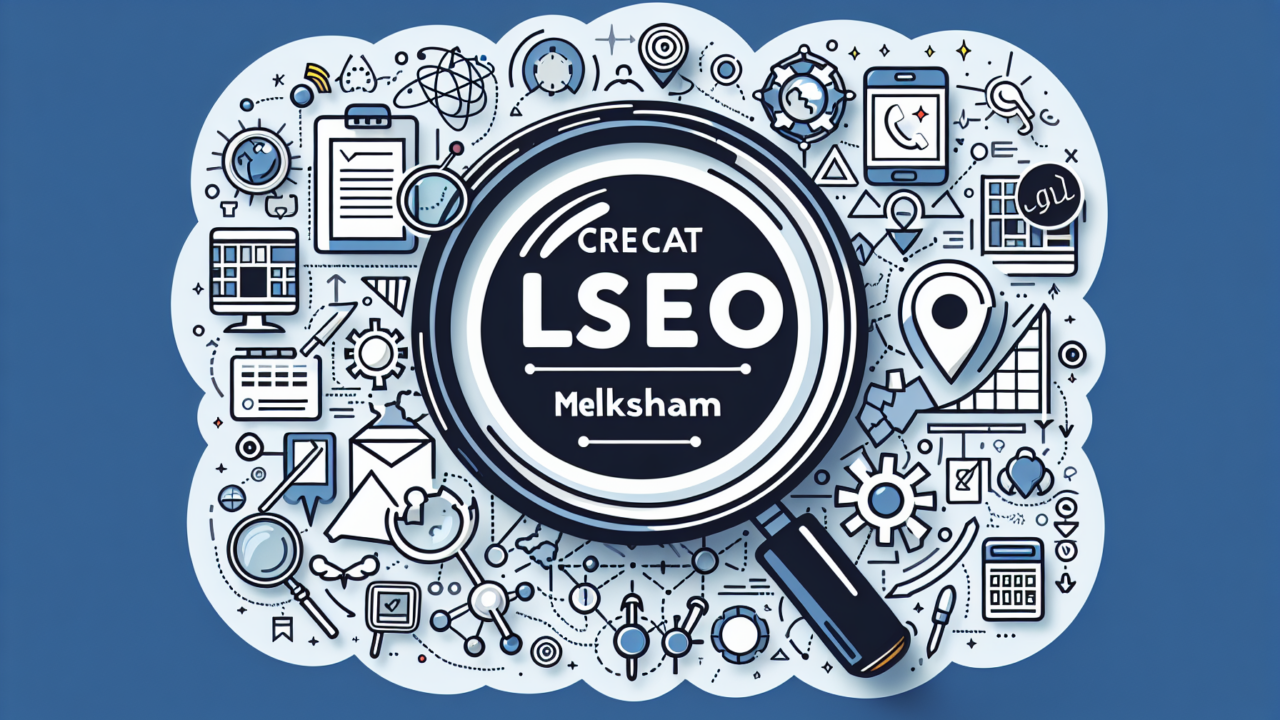Serving local customers for over 25 years.
Trusted by local business for reliable website design, SEO services and Digital Marketing in Somerset, Dorset, Devon, Wiltshire and Gloucestershire. 30 years of online marketing experience across the world.
Table of Contents
ToggleUnderstanding the Scope of Digital Agency Services
Digital agency services encompass a diverse and multifaceted suite of online marketing and development solutions that fundamentally enhance a brand's digital presence. In a marketplace characterised by fierce competition, these services have transitioned from merely advantageous to essential for businesses aspiring to establish a noteworthy online footprint. A strong digital presence can yield significant outcomes, including heightened brand awareness, improved customer engagement, and substantial revenue growth. Companies that invest in these services often see a positive transformation in their overall market performance, enabling them to thrive in an increasingly digital-first world.
Businesses must employ various strategies to distinguish themselves from competitors. Digital agency services cover a broad spectrum of disciplines, including search engine optimisation (SEO), pay-per-click (PPC) advertising, social media marketing, web design, and content creation. Each service is meticulously crafted to tackle specific business challenges and objectives. For example, a company might aim to boost its online visibility through effective SEO techniques while engaging its audience with captivating social media campaigns that resonate with their interests.
The benefits of leveraging digital agency services are extensive and impactful. By utilising these services, organisations can achieve enhanced visibility in search engine results, foster elevated engagement rates with their target demographic, and improve conversion rates across various marketing channels. Ultimately, businesses witness a significant uplift in their return on investment (ROI). In an era where digital interactions are paramount, investing in these services can produce substantial long-term advantages that contribute to sustained growth and success in the digital realm.
Defining Digital Agency Services

Digital agency services represent various online marketing and development solutions to elevate a brand's digital presence. These services encompass specialised techniques and strategic approaches to improve visibility, foster engagement, and drive conversions across multiple digital platforms. Businesses can effectively compete in the digital sphere by leveraging these services, generating increased traffic and sales. Furthermore, integrating these services promotes a cohesive approach to online marketing, establishing a brand's unique identity and voice amidst a crowded marketplace, ultimately enhancing its overall impact and reach.
The Critical Role of Digital Agency Services
The significance of digital agency services cannot be overstated in the current market landscape. As consumer behaviour increasingly shifts towards online interactions, businesses must adapt to this transformation or risk becoming obsolete. Establishing and nurturing a robust online presence is crucial for attracting and retaining customers in a highly competitive environment. Without a strategic approach, businesses may struggle to connect with their target audience, resulting in missed opportunities and stagnant growth. Additionally, these services offer invaluable insights into market trends and consumer preferences, empowering businesses to make informed decisions and stay ahead of the competition.
The Diverse Types of Digital Agency Services Available
The landscape of digital agency services is expansive, comprising various types of solutions meticulously tailored to meet the unique needs of different businesses. Key services include:
1. SEO: Optimising a website's content and structure to enhance its visibility in search engine results. By employing effective SEO strategies, businesses can attract organic traffic and improve their online authority, ultimately positioning themselves favourably against competitors.
2. PPC: Pay-per-click advertising allows businesses to drive immediate website traffic. Through targeted campaigns, companies can reach specific demographics, achieving measurable results that translate into increased brand visibility and customer acquisition.
3. Social Media Marketing: This service centres on building a brand's presence across social media platforms. By actively engaging with followers and curating shareable content, businesses can amplify their visibility and cultivate a sense of community among their audience.
4. Web Design: A professionally designed website establishes credibility and enhances user experience. Digital agencies provide web design services that ensure websites are visually appealing, functional, and user-friendly.
5. Content Creation: High-quality content is fundamental for attracting and retaining customers. Digital agencies produce diverse content types, from informative blogs to engaging videos, all aimed at captivating audiences and effectively communicating brand messages.
Each type of service plays a vital role in crafting a holistic digital strategy that aligns with a business's specific goals and objectives, driving success in the online marketplace.
The Numerous Advantages of Digital Agency Services

Utilising digital agency services presents many benefits that can significantly influence a business's online performance. One of the primary advantages is increased visibility. By optimising their online presence through effective SEO and targeted advertising campaigns, businesses can ensure they are discoverable by potential customers actively searching for their products or services. This enhanced visibility typically results in higher engagement rates, as targeted audiences are more inclined to interact with content that resonates with their interests.
Moreover, improved engagement directly correlates with enhanced conversion rates. Well-structured digital strategies can effectively guide potential customers through the sales funnel, leading to increased purchases and improved customer retention. Additionally, these services offer measurable results, enabling businesses to track their progress and ROI. By leveraging data-driven insights, organisations can continually refine their strategies, ensuring their marketing efforts remain effective and aligned with evolving market trends.
As businesses invest in digital agency services, they can anticipate substantial growth in their online presence, customer engagement, and revenue streams, solidifying these services as a wise investment for any forward-thinking organisation.
Exploring the Essentials of SEO Services
SEO services form the foundational bedrock of digital marketing, focusing on enhancing a website's visibility in search engine results pages (SERPs). By implementing effective SEO strategies, businesses can attract organic traffic, positioning themselves advantageously against competitors in an increasingly crowded marketplace.
The Vital Importance of Keyword Research
Keyword research is the cornerstone of any successful SEO strategy. This process involves identifying and targeting the most relevant keywords for a business's offerings. By gaining insight into what potential customers are searching for, businesses can tailor their content to meet those needs effectively. This comprehensive approach uses various tools and techniques to analyse search volume, competition, and keyword relevance, ensuring that businesses capitalise on the most lucrative opportunities.
Effective keyword research identifies high-traffic keywords and uncovers long-tail keywords that may present less competition and higher conversion potential. For instance, while a broad keyword like “shoes” may attract significant traffic, a more specific long-tail keyword such as “men's waterproof hiking shoes” can draw a more targeted audience actively seeking those products. This strategic approach guarantees that businesses are not merely drawing in traffic but attracting the right traffic that is more likely to convert.
Once the appropriate keywords are identified, they can be strategically integrated into website content, meta tags, and headings, creating a seamless user experience that aligns with search engine algorithms. By adopting a data-driven approach to keyword research, businesses can significantly improve their search engine rankings and drive relevant website traffic, ultimately enhancing their online visibility and authority.
Optimising On-Page Elements for Maximum Impact

On-page optimisation involves refining various elements within a website to enhance its SEO performance. This includes optimising meta tags, headings, and content to ensure they are relevant to targeted keywords. Each website page should be structured to facilitate engine crawling and user engagement, creating an effective balance between optimisation and usability.
Key components of on-page optimisation include:
1. Meta Tags: These concise text snippets provide search engines with a summary of a webpage's content. Crafting compelling title tags and meta descriptions incorporating targeted keywords can significantly enhance click-through rates from search results, encouraging users to visit the page.
2. Headings: The appropriate use of headings (H1, H2, H3) not only improves readability but also signals to search engines the hierarchy of content on a page. Including keywords in these headings is crucial for boosting SEO and ensuring that content is easily discoverable.
3. Content Quality: The content must be informative, engaging, and relevant to the target audience. Search engines prioritise high-quality content, and ensuring that it addresses users' queries is vital for improving rankings and fostering user satisfaction.
4. Internal Linking: Linking to other relevant pages within the website can enhance navigation and keep visitors engaged longer, signalling to search engines that the site provides valuable content. This interconnectedness can improve overall site authority and user experience.
By focusing on these essential aspects of on-page optimisation, businesses can create a user-friendly experience that aligns with search engine requirements, significantly improving their SEO outcomes and driving organic traffic.
Enhancing Online Authority Through Off-Page SEO Strategies
Off-page SEO refers to actions taken outside a website to improve its search rankings and overall online authority. While on-page SEO focuses on content and structure, off-page strategies focus on building a website's authority and trustworthiness through backlinks and other external signals.
One of the most effective off-page SEO techniques is link building. By acquiring backlinks from reputable websites, a business can enhance its domain authority, a crucial ranking factor for search engines. High-quality backlinks act as endorsements, signalling to search engines that the content is credible and valuable, ultimately improving search visibility.
Moreover, social media engagement plays a vital role in off-page SEO. While social media signals may not directly influence search rankings, a strong social media presence can drive traffic to a website and increase brand visibility. When content is shared across social platforms, it has the potential to attract backlinks from other websites, further enhancing its authority and reach.
Guest blogging is another powerful off-page SEO technique. By writing articles for other reputable sites, businesses can include links to their website, driving traffic and improving their search engine rankings. Furthermore, engaging with online communities and forums related to your industry can also help build relationships and earn valuable backlinks.
Ultimately, a well-rounded off-page SEO strategy complements on-page efforts, creating a comprehensive approach to digital marketing that boosts a brand's visibility and credibility online.
The Impact of PPC Advertising on Digital Marketing
PPC (Pay-Per-Click) advertising is a pivotal component of many digital marketing strategies, designed to drive immediate traffic and conversions through targeted ads. Unlike traditional advertising, where a business pays for ad space regardless of performance, PPC allows for a more measurable and strategic approach, giving businesses greater control over their marketing spend and outcomes.
Effective Campaign Setup for Success
Creating a successful PPC campaign involves meticulous planning and execution. The first step is clearly defining the campaign goals, whether to increase website traffic, generate leads, or boost sales. A well-defined understanding of objectives is essential for shaping the campaign strategy and ensuring alignment with overall business goals.
Once the goals are established, businesses must conduct thorough keyword research to identify terms that their target audience is actively searching for. This research informs the selection of keywords to bid on, ensuring that ads appear in relevant search results and attract the right audience. The next phase involves designing compelling ad copy that resonates with the target demographic. This includes crafting persuasive headlines, clear calls to action, and engaging descriptions that entice users to click on the ads.
After setting up the campaign, continual monitoring and optimisation are vital for achieving the desired results. Analysing performance metrics such as click-through rates, conversion rates, and cost per acquisition allows businesses to make data-driven decisions and refine their strategies. A/B testing different ad variations can also reveal the most effective messaging and design elements, ensuring optimal performance and maximising return on investment.
In summary, a well-structured PPC campaign can deliver immediate results, driving targeted traffic to a website and ultimately enhancing conversion rates, making it a crucial element of a successful digital marketing strategy.
The Art of Persuasive Ad Copywriting
The success of a PPC campaign hinges significantly on effective ad copywriting. Crafting compelling ad copy is an art that requires a deep understanding of the target audience and their pain points. The goal is to create a sense of urgency and relevance that encourages users to act by clicking on the ad or completing a purchase.
Successful ad copy typically includes a strong headline that captures attention, often incorporating targeted keywords to enhance relevance. The body of the ad should communicate the value proposition, highlighting what sets the product or service apart from competitors. A compelling call-to-action (CTA) is essential, directing users on the next steps, whether it is “Shop Now,” “Sign Up Today,” or “Learn More.”
Utilising emotional triggers can significantly enhance the effectiveness of ad copy. For instance, phrases that evoke curiosity, urgency, or exclusivity can prompt users to click. Additionally, incorporating numbers, statistics, or testimonials can lend credibility and attract attention, further enticing users to engage with the ad.
Through continuous testing and optimisation of ad copy, businesses can uncover what resonates most with their audience, ultimately improving click-through rates and conversions. A/B testing different versions of ad copy allows for data-driven insights, ensuring that the messaging evolves to meet audience needs effectively and remains compelling in a competitive advertising landscape.
In the competitive realm of PPC advertising, exceptional ad copywriting can make all the difference in capturing attention and driving conversions, ultimately contributing to the overall success of digital marketing campaigns.
Monitoring and Analysing PPC Campaign Performance
Monitoring and analysing PPC campaign performance is crucial for optimising spending and improving ROI. This involves tracking key performance indicators (KPIs) such as click-through rates (CTR), conversion rates, and cost per click (CPC). Each of these metrics provides valuable insights into how well the campaign performs and where adjustments may be necessary to enhance effectiveness.
Regular analysis of these metrics allows businesses to identify trends and patterns in user behaviour. For example, suppose specific keywords are driving high traffic but low conversions. In that case, it may indicate that the ad copy or landing page needs to be optimised to better align with user expectations. Conversely, keywords exhibiting high conversion rates could warrant increased bids to maximise visibility and drive more traffic.
Advanced analytics tools can enhance performance analysis by providing in-depth user behaviour and engagement insights. This data can inform decisions regarding budget allocation, keyword selection, and ad placements, ensuring that resources are directed towards the most effective strategies for achieving desired outcomes.
Furthermore, competitor analysis can yield valuable insights. Understanding what strategies competitors are employing can highlight opportunities and areas for improvement. By regularly assessing performance and making data-driven adjustments, businesses can continually refine their PPC campaigns, maximising return on investment and maintaining a competitive edge.
Strategic Keyword Research for PPC Success
In the context of PPC, keyword research is critical for identifying and selecting high-performing keywords that can drive relevant traffic to a business's website. The right keywords can mean the difference between a successful campaign and one that fails to generate the desired results.
Effective keyword research begins with a comprehensive understanding of the target audience and their search behaviour. By utilising various tools, businesses can analyse search volume, competition, and the relevance of potential keywords. Long-tail keywords, more specific phrases typically used by users further along in the buying process, can often yield better results due to lower competition and higher conversion rates.
Incorporating these keywords into ad campaigns enhances ad relevance and improves Quality Score, a key metric used by platforms like Google Ads. A higher Quality Score can lead to lower costs per click and better ad placements, making keyword research a fundamental component of PPC success.
Additionally, ongoing keyword analysis is essential. As market trends and consumer behaviour evolve, regularly revisiting keyword strategies ensures that campaigns remain competitive and effective. By leveraging data-driven insights to refine keyword targeting, businesses can significantly enhance the performance of their PPC campaigns and maximise their return on investment.
Mastering Bid Management for Effective PPC Campaigns
Bid management is a critical aspect of PPC advertising. It involves the strategic adjustment of bids to maximise ad positions while controlling costs. Effective bid management ensures that a business's ads are displayed prominently without overspending clicks, ultimately enhancing campaign performance.
The first step in bid management involves setting a clear budget and determining the maximum cost-per-click (CPC) the business is willing to pay for each keyword. This requires a thorough understanding of each keyword's potential return on investment. High-performing keywords may warrant higher bids to maintain visibility, while less effective keywords can be adjusted downwards to optimise budget allocation.
Utilising automated bidding strategies can greatly simplify this process. Many PPC platforms offer automated bidding options that adjust bids in real-time based on performance metrics and pre-set goals. This allows businesses to optimise their campaigns dynamically, ensuring they remain competitive without needing constant manual intervention.
Regular analysis of bid performance is essential for successful bid management. By tracking the performance of each keyword and its associated costs, businesses can make informed decisions about where to allocate the budget and adjust bidding strategies accordingly. This data-driven approach maximises ad efficiency and ensures that campaigns remain profitable while achieving desired marketing outcomes.
In conclusion, effective bid management is key to balancing visibility and cost in PPC advertising. It enables businesses to achieve their marketing goals while optimising their budget for maximum impact.
The Power of Social Media Marketing
Social media marketing has emerged as a powerful tool for businesses seeking to engage audiences and build brand awareness. Organisations can leverage social platforms by developing tailored strategies to foster community, drive interaction, and ultimately enhance their overall marketing efforts.
Crafting an Effective Social Media Strategy
Creating a successful social media marketing strategy begins with thoroughly understanding the target audience. Businesses must identify who their audience is, what platforms they frequent, and what types of content resonate with them. This foundational knowledge informs the entire strategy, ensuring it aligns with the audience's preferences and behaviours.
Next, setting clear objectives is crucial. Whether the goal is to increase brand awareness, drive traffic to a website, or generate leads, defining measurable goals allows for effective assessment of campaign performance. For instance, if the objective is to boost engagement, tracking metrics such as likes, shares, and comments can provide insights into audience interaction and overall campaign success.
Once goals are established, businesses can create a content calendar that outlines what content will be shared, when, and on which platforms. This ensures a consistent posting schedule and allows for a strategic mix of content types, including promotional posts, educational articles, and user-generated content that reflects the brand's values and engages the community.
Moreover, engaging with followers is essential for building a loyal community. Responding to comments, addressing concerns, and encouraging user interaction help to foster a sense of connection and brand loyalty. A well-thought-out social media strategy increases visibility and cultivates meaningful relationships with audiences, ultimately enhancing brand perception and trust.
Utilising analytics tools to monitor performance is also vital. Regularly assessing metrics allows businesses to refine their strategies based on what resonates with users, ensuring that social media marketing efforts remain effective and impactful.
Creating Engaging Content for Social Media
Engaging and shareable content is at the heart of successful social media marketing. The type of content shared can significantly impact audience interaction and brand perception. From eye-catching images to informative infographics and compelling videos, each piece of content should be meticulously designed to resonate with the target audience and encourage sharing.
High-quality visuals are crucial in social media success, as platforms like Instagram and Facebook prioritise visually appealing content. Investing in professional photography, graphic design, or video production can significantly enhance the quality of shared content, making it more likely to be shared and engaged with by users.
Moreover, storytelling is a powerful technique that can captivate audiences. Sharing brand stories, customer testimonials, or behind-the-scenes glimpses humanises a brand and fosters emotional connections with followers. Content that evokes emotions, whether humour, nostalgia, or inspiration, is more likely to be shared and remembered, amplifying brand reach.
Written content must be informative and valuable in addition to visuals. Sharing insightful articles, industry news, or helpful tips positions a brand as an authority within its niche, encouraging followers to regularly seek out and engage with content.
Regularly assessing content performance through analytics allows businesses to understand what resonates most with their audience. By adapting content strategies based on these insights, companies can continuously improve engagement and foster a vibrant online community that supports the brand.
Utilising Analytics and Reporting for Social Media Success
Understanding the impact of social media marketing efforts is essential for continuous improvement. This requires tracking various metrics to assess performance and refine strategies effectively. Key performance indicators (KPIs) include engagement rates, reach, impressions, and conversion rates, all of which provide valuable insights into the effectiveness of social media campaigns.
Utilising analytics tools provided by social media platforms allows businesses to gather data on how their content performs. For instance, insights into which posts receive the most engagement can inform future content strategies and help identify high-performing content types. Additionally, monitoring audience demographics and behaviours can help tailor content to meet the specific needs of target segments, enhancing overall campaign relevance.
Regular reporting on these metrics is crucial for assessing the overall effectiveness of social media strategies. Businesses can create detailed reports highlighting successes, challenges, and areas for improvement. These reports should include actionable insights that inform future campaigns, ensuring that strategies evolve based on data-driven findings for continued success.
Furthermore, analysing competitor performance can offer valuable lessons. Businesses can identify opportunities and refine their strategies by observing what works well for competitors. This competitive analysis allows organisations to stay ahead in the ever-changing social media landscape, ensuring their marketing efforts remain relevant and impactful.
In summary, continuous monitoring and reporting of social media performance empower businesses to make informed decisions. This ensures that their marketing efforts remain effective and aligned with audience preferences, driving sustained engagement and growth.
Crafting Exceptional Web Design and Development
A well-designed and developed website is the cornerstone of a brand's digital presence. It is essential for shaping user experiences and driving engagement across various platforms, ultimately influencing customer perceptions and business success.
Enhancing User Experience Through Thoughtful Design
User experience (UX) is a critical component of web design, focusing on creating seamless and intuitive user interactions. A website must be easy to navigate, visually appealing, and aligned with user expectations. Prioritising UX enhances the likelihood of retaining visitors and encourages them to explore the site further, ultimately increasing engagement and conversion rates.
Key elements of a positive user experience include fast load times, intuitive navigation, and mobile compatibility. Research indicates that users are likely to abandon websites that take too long to load, with studies showing that even a one-second delay can result in significant traffic loss. Ensuring a website is optimised for speed can dramatically improve user retention and satisfaction, leading to higher engagement rates.
Additionally, intuitive navigation is paramount. Users should be able to find the information they need with minimal effort. Implementing clear menus, categorised content, and effective search functionality can enhance navigation and encourage users to spend more time on the site, ultimately improving user satisfaction and brand perception.
Another vital aspect of UX is mobile responsiveness. Given the growing prevalence of mobile device usage, websites must be designed to function seamlessly across various screen sizes. A mobile-friendly design enhances accessibility, ensuring that users have a positive experience regardless of their device, which is critical for retaining potential customers.
Ultimately, prioritising user experience in web design leads to improved engagement, lower bounce rates, and increased conversions, making it a fundamental aspect of a successful digital strategy and a key driver of overall business success.
The Necessity of Responsive Design in Today’s Digital Landscape
Responsive design ensures a website is accessible and visually appealing across all devices, including desktops, tablets, and smartphones. With the growing trend of mobile browsing, having a responsive website is no longer optional; it has become necessary for effective digital marketing.
A responsive design automatically adjusts the layout and content based on the screen size, ensuring users have an optimal viewing experience regardless of the device. This involves fluid grids, flexible images, and media queries that modify the website's appearance in real time, delivering a consistent experience across all platforms.
The benefits of responsive design extend beyond user experience and impact SEO. Search engines like Google prioritise mobile-friendly websites in their rankings. By implementing a responsive design, businesses can enhance their search visibility and attract more organic traffic, increasing brand exposure and potential sales.
Moreover, responsive design improves site speed, another critical factor for user satisfaction and SEO. A site that loads quickly on mobile devices reduces bounce rates and increases the likelihood of conversions. Conversely, websites that are not mobile-friendly can frustrate users, leading to a loss of potential customers and diminished brand loyalty.
Investing in responsive web design enhances user experience and positions a business favourably in search rankings, driving traffic, engagement, and, ultimately, revenue growth through enhanced online visibility.
Providing Comprehensive E-commerce Solutions
Robust e-commerce solutions are essential for businesses looking to sell products online. A well-designed e-commerce platform can facilitate seamless transactions, enhance customer experiences, and drive sales growth, ultimately leading to increased profitability.
Key components of effective e-commerce solutions include secure payment gateways, intuitive product categorisation, and user-friendly checkout processes. Security is paramount in online payments; implementing secure payment systems instils trust and confidence in customers, encouraging them to complete their purchases without hesitation.
Additionally, intuitive product categorisation helps users navigate the site efficiently, making finding the products they seek easy. Clear product descriptions, high-quality images, and customer reviews further enhance the shopping experience, providing potential customers with the information they need to make informed decisions and fostering a positive impression of the brand.
A streamlined checkout process is also crucial. Reducing the steps required to purchase can significantly decrease cart abandonment rates. Offering multiple payment options and guest checkout features can further simplify the process, catering to diverse consumer preferences and enhancing conversion rates.
By investing in comprehensive e-commerce solutions, businesses can create a seamless online shopping experience that drives conversions and fosters customer loyalty, ultimately contributing to long-term success in the competitive e-commerce landscape.
Empowering Businesses with Content Management Systems
A user-friendly content management system (CMS) is essential for businesses that wish to manage their website content efficiently. A robust CMS allows non-technical users to update and manage website content without requiring extensive coding knowledge, streamlining the content creation process.
The key features of an effective CMS include intuitive interfaces, customisable templates, and built-in SEO tools. With a user-friendly interface, even those without technical expertise can create, edit, and publish content easily. This flexibility allows businesses to keep their websites up to date without relying on external developers, fostering agility and responsiveness to market changes.
Customisable templates enable businesses to maintain brand consistency while allowing for creative expression. A CMS that offers various design options empowers users to create visually appealing pages that align with their brand identity and resonate with their target audience.
Furthermore, built-in SEO tools help businesses optimise their content for search engines. Features such as meta tag management, URL customisation, and keyword tracking simplify optimisation, ensuring that content remains discoverable and competitive in search rankings.
By leveraging a powerful CMS, businesses can streamline content management processes, enhance user experience, and improve search visibility, ultimately driving traffic and engagement while establishing a strong online presence.
Integrating SEO into Web Design and Development
Search engine optimisation (SEO) is a vital aspect of web design and development. It focuses on enhancing a website's visibility in search engine results. A well-optimised website attracts organic traffic and establishes credibility and authority in the online marketplace, contributing to overall business success.
Key SEO components in web design include optimising website structure, enhancing page load speeds, and ensuring mobile-friendliness. A well-structured website with clear navigation helps search engines crawl and index content effectively. Incorporating relevant keywords throughout the site, including in headings and meta tags, improves the chances of ranking well in search results, driving targeted traffic to the site.
Page load speed is another crucial factor for both user experience and SEO. Websites that load slowly can frustrate users and lead to higher bounce rates. Implementing optimisation techniques, such as minimising image sizes and leveraging browser caching, can significantly enhance load times, contributing to improved user satisfaction and retention.
Moreover, ensuring the website is mobile-friendly is essential, as search engines prioritise mobile-optimised sites in their rankings. A responsive design that adapts seamlessly across devices enhances user experience and contributes to better search visibility, driving organic traffic and increasing conversions.
By integrating effective SEO strategies into web design and development, businesses can enhance their online presence, drive traffic, and boost conversions, solidifying their competitive position in the digital landscape.
The Strategic Importance of Content Marketing
Content marketing is a strategic approach focused on creating and distributing valuable content to attract and engage a target audience. It ultimately drives profitable customer action and fosters brand loyalty.
The Impact of Blogging on Content Marketing Success
Blogging is pivotal in content marketing. It serves as a platform for businesses to share informative and engaging content with their audience. A well-executed blog can establish a brand’s authority, drive organic traffic, and foster customer engagement, ultimately enhancing brand reputation and visibility.
The key to successful blogging is creating high-quality, relevant content that resonates with the target audience. Understanding the audience's interests and pain points allows businesses to tailor their blog posts to address specific needs and preferences. Incorporating targeted keywords enhances SEO, increasing the likelihood of attracting organic traffic and improving search visibility.
Regularly updating the blog with fresh content keeps readers engaged and signals to search engines that the website is active and relevant. Consistency is vital; developing a content calendar helps businesses plan and schedule posts, ensuring a steady flow of valuable information that keeps audiences informed and engaged.
Moreover, including visuals, such as images and infographics, can enhance the appeal of blog posts and boost engagement. Engaging headlines and clear calls-to-action encourage readers to interact with and share the content across their networks, amplifying reach and driving traffic back to the website.
By leveraging blogging as a powerful content marketing tool, businesses can create a strong online presence, educate their audience, and drive website traffic, ultimately contributing to improved brand recognition and customer loyalty.
Leveraging Video Production for Enhanced Engagement
Video production has emerged as a compelling medium for conveying brand messages effectively. In an age where visual content dominates, videos can captivate audiences in ways that text-based content may not, fostering deeper engagement and connection.
High-quality videos can tell a brand's story, showcase products, or provide valuable information in an engaging format. Whether through promotional videos, tutorials, or customer testimonials, well-produced content can foster emotional connections with viewers, ultimately driving conversions and loyalty.
The rise of platforms like YouTube and social media has made video content more accessible than ever. Businesses can leverage these platforms to reach wider audiences and drive engagement. Optimising videos for search engines by incorporating relevant keywords in titles and descriptions can enhance visibility, attract organic traffic, and increase brand exposure.
Additionally, shorter videos tailored for social media platforms can drive higher engagement rates, as users often prefer quick, easily digestible content that captures their attention. By utilising video production as part of their content marketing strategy, businesses can enhance their brand visibility and engagement, leading to higher conversion rates and customer loyalty.
Investing in professional video production can yield significant returns. Captivating videos not only communicate messages effectively but also resonate with audiences, fostering trust and encouraging action.
Utilising Email Campaigns for Customer Engagement
Email marketing campaigns remain a powerful tool for nurturing leads and driving conversions. By designing and executing strategic email campaigns, businesses can keep their audience informed and engaged and ultimately guide them through the buying process, enhancing customer relationships and loyalty.
Segmenting the email list based on user behaviour and preferences ensures recipients receive tailored content that resonates with their interests. Personalisation, such as addressing recipients by name and recommending products based on past purchases, can enhance engagement rates and foster a deeper connection with the audience.
Crafting compelling email content is essential for capturing attention. Engaging subject lines that evoke curiosity encourage recipients to open the emails and explore the content. The body content should be concise and informative and include strong calls to action that guide recipients towards the desired outcome, whether it is making a purchase or signing up for a webinar.
Additionally, analysing the performance of email campaigns is crucial for optimisation. Tracking metrics such as open rates, click-through rates, and conversion rates allows businesses to assess the effectiveness of their campaigns and make data-driven adjustments to improve future performance.
By leveraging email campaigns as part of their content marketing strategy, businesses can nurture leads, foster customer loyalty, and drive conversions effectively, ultimately contributing to long-term business success.
The Role of Analytics and Reporting in Digital Marketing
Analytics and reporting are essential components of any digital marketing strategy. They provide businesses with valuable insights into performance and enable data-driven decision-making. By leveraging data effectively, organisations can optimise their marketing efforts and achieve better results.
Effective Data Collection Techniques
Effective data collection involves gathering and organising information from various digital channels to gain insights into performance. This process encompasses many metrics, including website traffic, social media engagement, email performance, and PPC campaign results, all of which contribute to a comprehensive understanding of marketing effectiveness.
Utilising analytics tools such as Google Analytics enables businesses to track website user behaviour. Key metrics, such as page views, bounce rates, and average session duration, provide insights into how users interact with content and where improvements may be needed to enhance user experience and engagement.
Social media platforms also offer robust analytics tools that allow businesses to monitor engagement metrics, including likes, shares, and comments. By collecting data from multiple sources, businesses can create a comprehensive picture of their digital performance, identifying strengths and areas for improvement.
Effective data collection also involves ensuring data accuracy and consistency. Regularly auditing data sources and validating the information collected helps maintain reliability and ensures that insights derived from the data are actionable and relevant, ultimately guiding strategic decision-making.
By establishing a systematic approach to data collection, businesses can develop a solid foundation for effective analytics and reporting, enabling them to make informed decisions that drive performance and growth.
Identifying and Tracking Key Performance Metrics
Defining and tracking key performance indicators (KPIs) is crucial for measuring the success of digital campaigns. These metrics serve as benchmarks, allowing businesses to assess whether their marketing efforts achieve desired outcomes and drive growth.
Common KPIs include website traffic, conversion, click-through, and engagement metrics. Tracking these indicators over time provides valuable insights into trends and patterns, enabling businesses to identify what is working and what requires adjustment to optimise performance.
For instance, if website traffic is increasing but conversion rates remain low, it may indicate that while users are interested in the content, barriers are preventing them from completing desired actions. This insight can prompt further investigation into user experience and website design, leading to targeted improvements that enhance conversion potential.
Regularly reviewing performance metrics allows businesses to refine their strategies and make data-driven decisions. By continuously tracking KPIs, organisations can ensure that their digital marketing efforts remain aligned with their overall goals and objectives, driving success in an increasingly competitive landscape.
Transforming Data into Actionable Insights
Analysing collected data to provide actionable insights is essential for improving digital strategies. Simply gathering data is insufficient; businesses must derive meaningful conclusions to inform future marketing efforts and drive better results.
Actionable insights involve identifying trends, patterns, and correlations within the data that can guide decision-making. For example, if analysis reveals that a particular email campaign resulted in higher conversions, businesses can replicate that approach in future campaigns, ensuring continued success.
Furthermore, leveraging A/B testing results can yield insights into what resonates most with audiences. By testing different strategies, such as varying subject lines or ad copy, businesses can identify the most effective messaging and optimise their marketing efforts accordingly, enhancing overall campaign performance.
Sharing these insights across teams fosters collaboration and ensures that all departments are aligned in their goals. By integrating actionable insights into strategic planning, businesses can continuously improve their digital marketing performance, driving better results and achieving sustainable growth over time.
Utilising Reporting Tools for Comprehensive Analysis
Utilising reporting tools is essential for generating comprehensive reports on digital performance metrics and trends. These tools streamline the process of compiling and visualising data, enabling businesses to present insights in an easily digestible format that facilitates informed decision-making.
Popular reporting tools like Google Data Studio allow businesses to create custom dashboards that showcase key performance metrics. This visual representation of data facilitates quick and informed decision-making by highlighting trends and areas requiring attention, ultimately enhancing strategic planning efforts.
Regularly generating reports helps businesses track progress over time and assess the effectiveness of their marketing strategies. These reports can be shared with stakeholders to demonstrate the impact of digital marketing efforts and facilitate discussions on future strategy, ensuring alignment and collaboration across the organisation.
Moreover, integrating data from various sources enhances the comprehensiveness of reports. By including insights from social media analytics, web traffic data, and PPC performance metrics, businesses can create a holistic view of their digital presence, enabling more informed decision-making.
In summary, leveraging reporting tools enables businesses to efficiently analyse and communicate performance metrics, ensuring that data-driven strategies remain at the forefront of decision-making and contribute to overall success.
Enhancing Communication Through Data Visualisation
Creating visual representations of data enhances understanding and facilitates decision-making in digital strategies. Data visualisation transforms complex datasets into easily understandable charts, graphs, and infographics, enabling stakeholders to grasp insights quickly and effectively.
Effective data visualisation involves selecting the appropriate format for presenting information. Bar charts, line graphs, and pie charts can highlight trends over time or illustrate proportions effectively. Infographics can summarise key findings visually and compellingly, making the information accessible to a wider audience and enhancing engagement.
Utilising colour and design elements strategically can also enhance comprehension. A well-designed visual can draw attention to critical insights and guide viewers through the data narrative, ultimately fostering deeper understanding and facilitating informed decision-making.
Regularly updating visualisation materials ensures stakeholders have access to the most current data, enabling timely decision-making. By leveraging data visualisation, businesses can enhance their digital strategies, ensuring that insights are effectively communicated and acted upon, ultimately driving better results and success.
Showcasing Client Success Stories
Showcasing real-world examples of how digital agency services have driven client success can effectively illustrate the tangible impact of these strategies, enhancing credibility and trust among prospective clients.
In-Depth Case Studies Demonstrating Results
Case studies provide detailed examinations of specific client engagements and highlight the effectiveness of digital agency services. By outlining the challenges faced, strategies implemented, and results achieved, businesses can showcase real-world applications of their services and their value.
For instance, a digital agency may have worked with an e-commerce client struggling with low online sales. By implementing a comprehensive SEO strategy, optimising their website, and launching targeted PPC campaigns, the agency could help the client achieve a significant increase in traffic and conversions, demonstrating the powerful impact of their services.
Businesses can build credibility and demonstrate their ability to deliver results by presenting data and testimonials within case studies. Detailed analyses can also highlight the unique approaches to address each client's challenges, providing insights into the agency's expertise and adaptability in various situations.
Using case studies in marketing materials can attract new clients, as prospects see the potential benefits of engaging with the agency based on proven success and tangible outcomes.
The Power of Client Testimonials
Client testimonials are powerful tools for building trust and credibility. Positive feedback from satisfied clients reinforces the value of digital agency services and demonstrates the impact of effective strategies in real-world scenarios.
When potential clients see genuine testimonials highlighting service satisfaction, they are more likely to feel confident in their decision to partner with a digital agency. Including specific metrics or results in testimonials can further enhance their impact. For instance, a client may share their experience of increasing web traffic by 200% after implementing a new content marketing strategy, showcasing the quantifiable benefits of the agency's efforts.
Collecting and showcasing testimonials across various platforms, including websites and social media, can maximise visibility and reach. Video testimonials can add an authentic touch, as potential clients see and hear the positive experiences of previous customers, further solidifying trust and credibility.
In conclusion, leveraging client success stories through case studies and testimonials can significantly enhance a digital agency's reputation and attract new business. This approach demonstrates real-world results and fosters trust among prospective clients.
Addressing Common Client Questions with FAQs
What are digital agency services?
Digital agency services encompass various online marketing and development solutions to enhance a brand's digital presence, including SEO, PPC, social media marketing, web design, and content creation.
Why are digital agency services important?
These services are crucial for businesses to establish and grow their online presence, improve visibility, engage customers, and boost ROI.
What types of services do digital agencies offer?
Digital agencies offer various services, including search engine optimisation (SEO), pay-per-click (PPC) advertising, social media marketing, web design, and content creation, all tailored to meet specific business needs and objectives.
How do SEO services work?
SEO services aim to improve a website's visibility in search engine results through keyword research, on-page and off-page optimisation, and content strategies that attract organic traffic and enhance user engagement.
What is PPC advertising?
PPC advertising enables businesses to drive immediate traffic to their websites by paying for clicks on ads displayed on search engines and other platforms. Costs are incurred only when users click the ads, ensuring a measurable return on investment.
What is social media marketing?
Social media marketing involves creating tailored strategies to engage audiences on platforms like Facebook, Instagram, and Twitter, building brand awareness and fostering community interaction.
What is the importance of web design in digital marketing?
Web design is crucial for creating a user-friendly and visually appealing website that enhances user experience, drives engagement, and improves conversion rates, ultimately contributing to overall business success.
How can content marketing benefit my business?
Content marketing helps attract and engage target audiences through valuable content, positioning your brand as an authority and driving organic traffic, leads, and conversions, all essential for sustainable growth.
What role does analytics play in digital marketing?
Analytics allows businesses to track performance metrics, gain insights into user behaviour, and make data-driven decisions to optimise their digital marketing strategies for better results and effectiveness.
How can I measure the success of digital agency services?
Success can be measured through key performance indicators (KPIs), such as traffic growth, engagement rates, conversion rates, and return on investment (ROI), using analytics and reporting tools to assess effectiveness and guide strategic adjustments.


















11 Comments
Your exploration of the growing importance of digital agency services really highlights a crucial shift in modern business dynamics. As you pointed out, establishing a strong online presence has transcended from a luxury to a necessity. However, I wonder if this proliferation of services sometimes leads to a dilution of quality.
You’re spot on about the need for businesses to invest in their digital presence. It’s fascinating to see how companies that once relied on traditional marketing are now finding their footing in this digital-first world. I’ve noticed that many brands are really leaning into social media marketing not just for promotion, but for genuine engagement with their audience. It’s all about building a community around the brand, right?
What a fantastic breakdown of digital agency services! It’s like a marketing buffet—there’s something for everyone! Personally, I’ve found that diving into SEO feels a bit like trying to solve a mystery novel sometimes. You chase keywords like they’re clues, and just when you think you’ve cracked the case, Google throws in an algorithm shift that leaves you scratching your head.
You bring up an interesting point about the potential dilution of quality in digital agency services. It really does feel like there’s been an explosion in options lately, and while that can be exciting, it raises concerns about how to sift through what’s genuinely valuable versus what’s just glossy marketing.
You bring up an interesting point about the potential quality concerns that can arise as more digital agency services flood the market. It’s true that a greater number of options doesn’t always equate to better outcomes. With so many players vying for attention, it can be a challenge for businesses to discern which agency truly understands their needs and can deliver results.
“That’s a great point, and quality is indeed paramount in this space. If you’re interested, check out this resource that highlights how to maintain high standards while enhancing your digital presence.”
https://ezi.gold/consult
You’ve really captured the essence of why a strong digital presence is so crucial today. It’s interesting to see how businesses that might have relied solely on traditional marketing are now shifting their strategies to include SEO, PPC, and social media marketing. In my experience, the landscape is not only about driving traffic but genuinely connecting with the audience.
I really appreciate how you’ve outlined the essential nature of digital agency services in this rapidly evolving landscape. The emphasis on companies needing to adapt and invest in their online presence is something that resonates with so many businesses today.
Your exploration of digital agency services highlights the critical role that a robust online presence plays in today’s competitive marketplace. As businesses increasingly recognize the necessity of these services, it’s interesting to consider how they not only enhance visibility but also forge deeper connections with target audiences.
It’s interesting to see how crucial a robust digital presence has become for businesses today. Just a few years ago, some companies viewed digital marketing as optional, but the landscape has shifted significantly. I recently worked with a small local business that hesitated to invest in SEO and social media marketing at first. After they finally took the plunge, they not only improved their online visibility but also fostered a stronger community connection through engaging content. They shared their journey on social platforms, which resonated with local customers and boosted their foot traffic dramatically.
Your insights into the evolving landscape of digital agency services really resonate with me. As someone who’s worked with various businesses trying to navigate the digital realm, I’ve seen firsthand how a robust online presence can truly be a game changer. The importance of SEO and PPC in today’s market cannot be overstated, especially given how consumers now rely heavily on online searches to inform their purchasing decisions.
I appreciate your perspective on the evolving landscape of digital agency services. Your experience underscores a crucial point: a robust online presence is indeed vital for businesses today. It’s fascinating how consumer behavior has shifted so dramatically with the advent of digital tools.